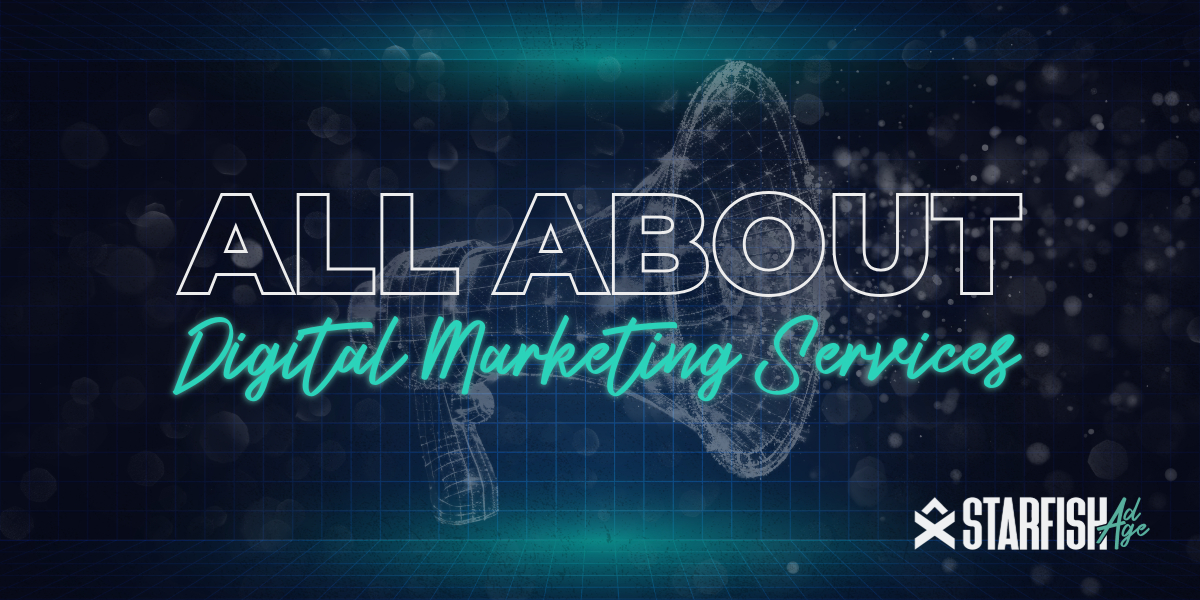
What Are The Different Digital Marketing Services?
Learn about SEO, PPC, social media marketing, content marketing, and more to drive traffic and conversions. Read now!
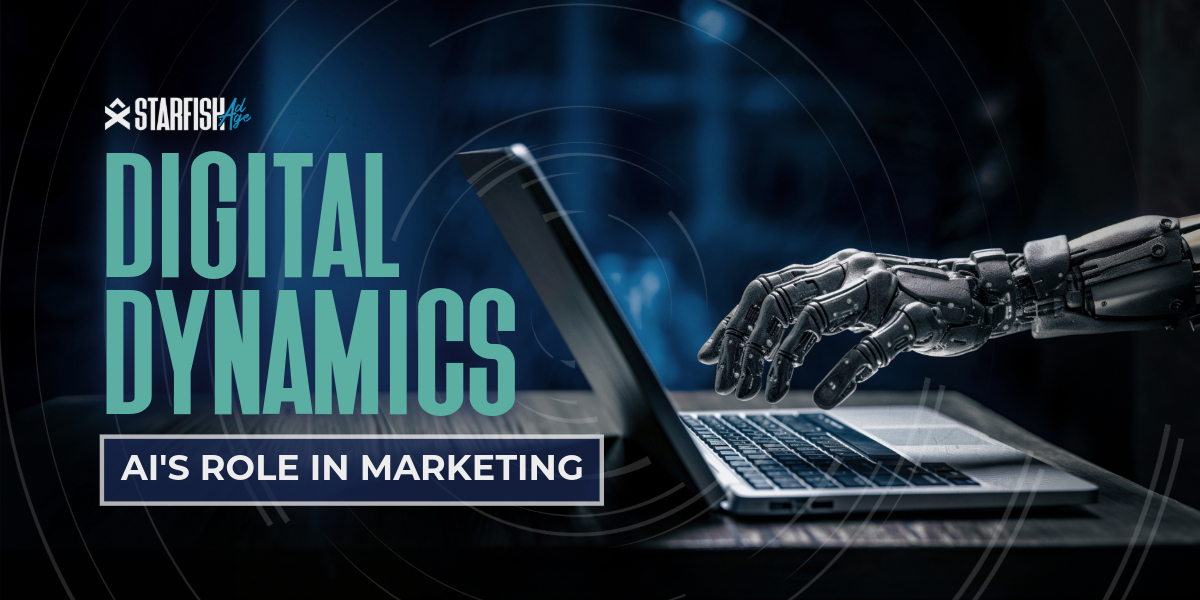
Let’s kick things off by getting clear on exactly what digital marketing is. In simple terms, digital marketing refers to any marketing effort that uses digital channels or technologies. Now, the big question is: Will AI replace digital marketing? While AI is transforming various aspects of marketing, it’s unlikely to completely replace the human touch and creativity required for effective digital marketing strategies. Instead, AI is becoming a powerful tool for marketers, enhancing their capabilities and efficiency in areas such as data analysis, personalization, and automation.
Digital marketing isn’t just about bombarding people with ads; it’s about engaging with them in meaningful ways, providing valuable and relevant content first, and ultimately driving desired actions, whether that’s making a purchase, signing up for a newsletter, or downloading an app.
There can be no denying that the use of artificial intelligence (AI) is already making waves across various industries. Some say it will also radically change how marketing and sales are conducted, including a shake-up in the need for digital marketers.
To be honest, there isn’t yet a lot of solid information on exactly how AI will affect digital marketing roles over the coming years. What we know is that current practices, accompanied by the need to devise better and better marketing strategies, continue to require the involvement of creative people. At the same time, however, the use of artificial intelligence in marketing is slowly increasing. Why is this happening?
The amount of available data grows daily, and finding ways to mine that data, analyze it, and apply it to advertising and marketing is making AI more and more attractive every year. As more organizations accumulate human resources specializing in data science and market analysis, the appeal of AI and marketing automation will become even stronger. So, will AI replace digital marketers? Keep reading to discover the answer.

One of the pros of artificial intelligence is its ability to automate certain tasks or sets of related tasks. There are obvious benefits to such automation, including streamlining processes and efficiently measuring outcomes with less time and effort. When it comes to marketing automation, these benefits can quickly become obvious and enhance your work going forward.
Marketing automation uses the capabilities of various systems, software, and platforms to build abilities that rise above the capabilities that each of these could do individually. One of the most beneficial results of this type of automation is the ability to streamline data collection and analysis.
With AI involved, patterns can be identified more quickly, leading to more accurate predictions that can help with your marketing planning. Overall, marketing automation can help you better execute your marketing strategy, utilize staff in the most productive ways, and save you time and resources in the process.
If you are a digital marketer, you may be concerned that AI might soon replace you, pushing you out of your employment altogether. The short answer to your concern is no, not just yet, and maybe never. While AI is useful, those of you in the digital marketing industry understand that this field still relies on the elements of creativity, inventiveness, and originality when finding ways to connect better with customers.
In other words, digital marketing still needs that human touch. It needs storytelling and emotion, two things AI is unable to master in the ways needed for effective marketing today. Yet, while human abilities will always be needed, you’ll benefit from realizing and accepting that your role in digital marketing will have to change over time.
The goal of most companies and marketing departments today is not to replace human resources altogether but to determine how to benefit from AI when it comes to their digital marketing strategy. So, instead of eliminating all digital marketing jobs, AI will force these jobs to evolve, utilizing the value AI can provide to develop better digital advertising experiences.

Overall, AI can enhance and simplify various aspects of your marketing campaigns. It can also lessen the number of mistakes and help you become more productive. A few specific valuable tasks AI can already do include the following:
AI aims at partially replacing humans in mundane everyday activities, starting with the automation of repetitive tasks and processes. It is accomplishing this more and more, even in marketing needs such as content curation, pay-per-click ad management, and replying to specific emails. All of these things can contribute to a better customer experience.
AI, with its programming and learned experience, can tackle large data sets, which can become cumbersome and time-consuming for humans. As a result, it can:
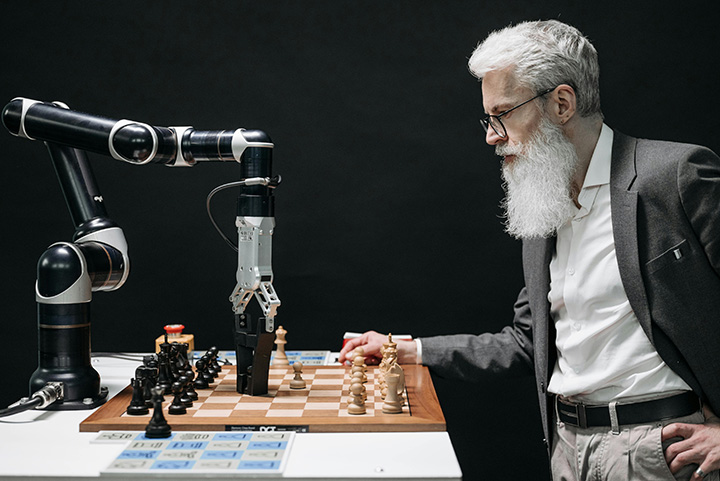
Digital assistants, such as chatbots, can provide customers with 24/7 access. Today, most digital assistants come with limited capabilities, engaging your customers with scripts and packaged workflows, the majority of which schedule something or route requests. Still, they can be considered assets, requiring marketers to rethink how digital customer engagement strategies and online channels are designed. This can also help them rethink how they look at the overall customer experience.
Implementation of AI is saving marketing departments valuable time, which can then lead to higher productivity. With AI automation and data analysis, digital marketers’ time and efforts are being redirected to the more difficult tasks as well as the more creative ones. This redirection increases efficiency and productivity.
Companies continue to experiment with AI to see what it can do by setting up pilot programs and testing its capabilities. Currently, these include experiments with the following:
There’s a lot of exciting potential for AI in the future, as long as you decide to look at it as a beneficial tool instead of one that will make your job obsolete.

There is still so much that artificial intelligence can’t do, especially when it comes to marketing and human involvement. Here are a few things AI can’t do currently:
AI machines require programming for specific tasks by humans and also need continuous updating. Occasionally, AI systems will need replacing as the needs of the various industries change.
No current technology, including AI, can replace human’s capability of creativity and creative problem-solving. AI is limited to the data it is given and the conclusions it can decipher based on that data. Don’t expect it to edit videos and photos, sketch landscapes, write new music, generate fresh ideas, or invent anything.
AI cannot perform or transmit emotions. As a result, converting such emotions into meaningful content that customers can relate to along their buyer’s journey is not possible.
Because AI lacks emotions, it cannot form real human connections. AI-based systems are limited to what they are programmed to do. They can not show empathy and are unable to understand and act on cultural and moral concerns.
Artificial intelligence technology cannot make final decisions requiring critical thinking. While AI can excel at assisting in the gathering of data and even analyzing it, plan development and strategy need that critical thinking element that humans possess.
Considering just these things AI can’t currently do, it hopefully provides you with insight into why humans are still needed in marketing and will continue to be so for the foreseeable future.
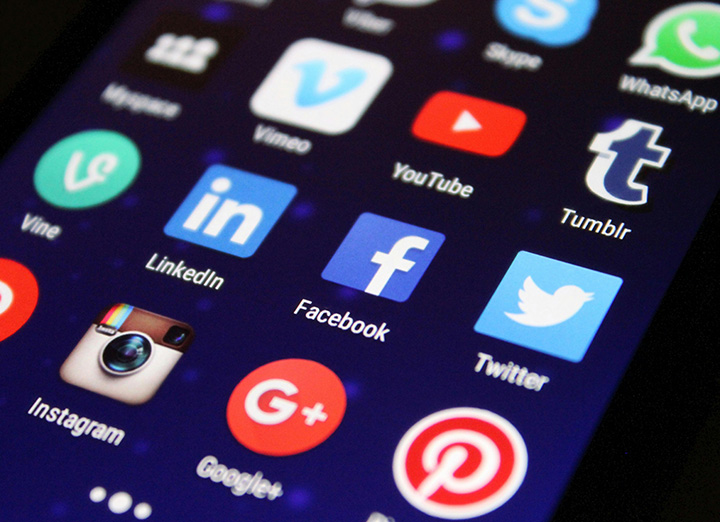
Social media platforms serve as indispensable tools for marketers to connect with audiences, build brand awareness, and drive engagement. Leveraging the power of social media marketing, businesses can amplify their reach and foster meaningful relationships with consumers. Here’s how AI is revolutionizing social media marketing across various fronts:
Influencer marketing has emerged as a potent strategy for brands to reach their target audiences authentically. However, identifying the right influencers who align with a brand’s values and resonate with its audience can be a daunting task. AI steps in to streamline this process by providing valuable insights into influencer demographics, engagement levels, and audience sentiments. By leveraging natural language processing (NLP) algorithms, AI can evaluate influencer content to ensure alignment with brand objectives. Additionally, AI aids in assessing campaign ROI, detecting fraudulent influencers, and optimizing content selection for maximum impact.
AI-powered tools are transforming social media advertising by enabling advanced ad management and optimization capabilities. These tools leverage machine learning algorithms to analyze vast datasets and identify optimal ad targeting strategies, audience segments, and creative elements. From A/B testing ad variations to predicting language preferences and optimizing for clicks and conversions, AI empowers marketers to maximize the effectiveness of their social media ad campaigns.
Visual content plays a pivotal role in social media marketing, making logo detection a crucial aspect of brand monitoring and analysis. AI-driven computer vision technologies facilitate the automatic detection and analysis of brand logos across social media platforms. By tracking the frequency and context of logo appearances, brands gain valuable insights into their visibility and brand sentiment on social networks. Moreover, AI-powered logo detection systems enable marketers to assess the effectiveness of brand campaigns and measure brand awareness accurately.
While AI holds immense potential for enhancing social media marketing efforts, it also presents certain challenges and limitations. Algorithmic bias remains a significant concern, potentially leading to unjust treatment or discrimination against certain groups
The rapid pace of technological advancement has outpaced regulatory frameworks and ethical guidelines, necessitating proactive measures to address ethical and legal implications. Additionally, the automation of tasks through AI raises concerns about the future of social media jobs and the broader implications for the workforce. To mitigate these challenges, concerted efforts are required to establish ethical standards, provide training programs for affected workers, and ensure equitable distribution of AI’s benefits across society.
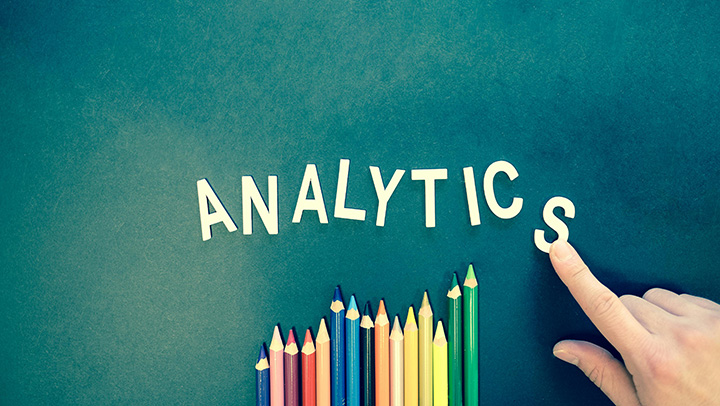
As AI continues to advance, its impact on Search Engine Optimization (SEO) becomes increasingly profound, reshaping the strategies and tactics employed by businesses to enhance their online visibility and rankings.
The backbone of search engines relies on intricate algorithms designed to crawl, index, and rank web pages. AI-powered algorithms, such as Google’s RankBrain, are revolutionizing this process by leveraging machine learning to decipher user intent and deliver more relevant search results. As AI technology evolves, search engines are expected to adopt similar advancements, leading to greater accuracy in understanding user queries and delivering personalized search results.
AI presents a game-changing opportunity to automate and refine essential SEO tasks, including keyword research and content optimization. By analyzing semantic relationships between keywords, identifying search trends, and predicting user behavior, AI-powered tools streamline the process of optimizing content for maximum visibility and engagement. Additionally, AI algorithms can assist in generating meta tags, headings, and other critical on-page elements essential for SEO success.
User experience is one of the most important aspects of SEO, influencing search engine rankings based on factors such as page load times, mobile responsiveness, and overall user engagement. AI-driven insights into user behavior enable businesses to enhance the user experience by identifying areas for improvement and delivering personalized content recommendations. Moreover, AI-powered chatbots offer instant assistance to visitors, fostering higher customer satisfaction and prolonged engagement on websites and mobile devices.
Predictive SEO harnesses the predictive capabilities of AI and machine learning to anticipate future trends, user behavior shifts, and search engine algorithm updates. By staying ahead of the search engine marketing curve, businesses can proactively adjust their SEO strategies to align with emerging trends and algorithm changes, ensuring sustained visibility and competitiveness in search rankings.
With the proliferation of voice assistants like Amazon’s Alexa and Google Assistant, voice search has become a prominent feature in SEO strategy. AI advancements in natural language processing enable businesses to optimize their content for voice search by analyzing voice queries, understanding user intent, and incorporating long-tail keywords to enhance discoverability in voice search results.
Visual search, powered by AI-driven image recognition technology, represents a burgeoning frontier in SEO. Platforms such as Google Lens and Pinterest Lens allow users to search for products and information using images, prompting businesses to optimize visual content in search ads for better discoverability. AI assists in analyzing and optimizing images with relevant metadata, facilitating improved indexing by search engines and higher visibility in visual search results.
AI’s integration into SEO practices heralds a new era of efficiency, precision, and innovation, enabling businesses to navigate with agility and effectiveness. Embracing AI-powered solutions empowers organizations to unlock new opportunities for growth and prominence.

Integrating AI into content marketing brings a ton of perks, making our lives as marketers a whole lot easier and our audience’s experiences much better. AI handles all those mundane tasks like data analysis and post-scheduling, slashing the time and costs involved.
It’s not always all it’s cracked up to be, though. AI in content marketing comes with its fair share of ethical challenges. With machines processing heaps of user data, privacy, and security have become major concerns. We’ve got to walk a fine line between providing personalized experiences and respecting people’s privacy.
And let’s not forget the human touch! AI might be great at churning out content, but it can’t quite capture those human emotions and experiences as well as we can. Balancing efficiency with authenticity is key to maintaining that genuine connection with our audience.
Looking ahead, AI’s role in research is set to explode. With advancements in deep learning and neural networks, algorithms will soon predict future trends, giving us a heads-up on market shifts and consumer preferences. But, we’ve got to keep a close eye on ethics, making sure AI-driven research stays trustworthy and unbiased.
As AI’s potential in content marketing becomes more well-defined, it’s clear: it’s not just a tool; it’s our partner in storytelling. By using AI’s capabilities wisely and ethically, we’re crafting a future where content resonates on a human level, forging real connections and meaningful engagement.

It’s a question on many marketers’ minds: will AI eventually render marketing teams obsolete? While it’s true that AI holds the potential to automate certain tedious tasks, such as analytics, the likelihood of it completely replacing marketing teams is slim.
At the core of marketing lies creativity—the magic that sparks connections, evokes emotions and weaves compelling stories. While AI shines in number crunching and data analysis, it falls short in the area of creativity and empathy, vital for crafting resonant marketing campaigns. Social media thrives on authentic, engaging content that speaks to audiences on a personal level.
Content creation is an art form, requiring human ingenuity to produce captivating narratives and visuals that capture attention and inspire action.
Similarly, design plays a huge role in shaping brand identities and conveying messages visually. It’s the human touch that breathes life into designs, infusing them with personality and meaning. AI may optimize processes and provide insights, but it’s the human touch that gives marketing its soul.
While AI can provide insights and inform data-driven strategies, the ultimate decision-making power still rests in human hands. Marketing requires astute decision-makers who can navigate nuance, context, and subtlety. Human marketers bring emotional intelligence to the table, essential for building authentic relationships with clients and audiences.
Despite their benefits, AI applications come with potential pitfalls. Data integrity is paramount, as corrupt or biased data can lead to flawed insights and decisions. Moreover, while AI can streamline processes and improve efficiency, it’s essential to use it intelligently, ethically, and responsibly.
While AI may reshape certain aspects of marketing, it’s crucial to view it as a tool to augment human capabilities rather than replace them entirely. By harnessing AI’s data-processing power and insights, marketers can gain a deeper understanding of their audience and craft more impactful campaigns. Ultimately, success in the age of AI hinges on using this technology intelligently and ethically to drive meaningful results.
Now you know the answer to the question, “Will AI replace digital marketing?” As the world of digital marketing continues to evolve at lightning speed, the use of cutting-edge AI technology is set to become increasingly prevalent.
However, it’s important to note that at the heart of every successful digital marketing campaign lies the invaluable input of skilled human marketers. So while AI may assist and enhance our efforts, it is ultimately our human expertise and creativity that will ensure continued success in this dynamic and exciting field.

Digital marketing, or digital advertising, refers to marketing efforts using digital channels or technologies such as social media, search engines, email, websites, and mobile apps. While AI is transforming aspects of marketing, it’s unlikely to replace the human touch and creativity required for effective digital marketing strategies. Instead, AI enhances marketers’ capabilities and efficiency in areas like data analysis, personalization, and automation.
Marketing automation involves using systems, software, and platforms to streamline tasks and processes, such as data collection and analysis. AI enhances marketing automation by identifying patterns in large datasets, using data analytics to provide insights for marketing planning, and predicting future customer behavior, and improving customer experiences.
No, AI is unlikely to completely replace digital marketers. While AI can automate certain tasks and processes, digital marketing still relies on human creativity, storytelling, and emotional connection with audiences, which AI cannot replicate.
AI can automate routine tasks, analyze large datasets for insights, create digital assistants like chatbots, save time and increase productivity, and facilitate pilot programs and experimentation in marketing strategies.
AI cannot operate on its own without human programming and updating, be creative or transmit emotions, make real human connections, offer critical thinking, or replicate human expertise and intuition in decision-making.
AI can enhance efficiency, productivity, and insights in digital marketing campaigns. It can optimize processes, provide valuable data-driven insights, and improve targeting and personalization, ultimately driving better results and ROI.
Challenges include ethical considerations regarding privacy and bias, the need to balance automation with authenticity, and ensuring responsible use of AI technology to avoid unintended consequences.
AI is expected to play an increasingly prevalent role in digital marketing, but human expertise and creativity will remain essential for success. By intelligently and ethically leveraging AI technology, marketers can gain deeper insights and drive more impactful campaigns while ensuring continued success in this dynamic field.

Learn about SEO, PPC, social media marketing, content marketing, and more to drive traffic and conversions. Read now!
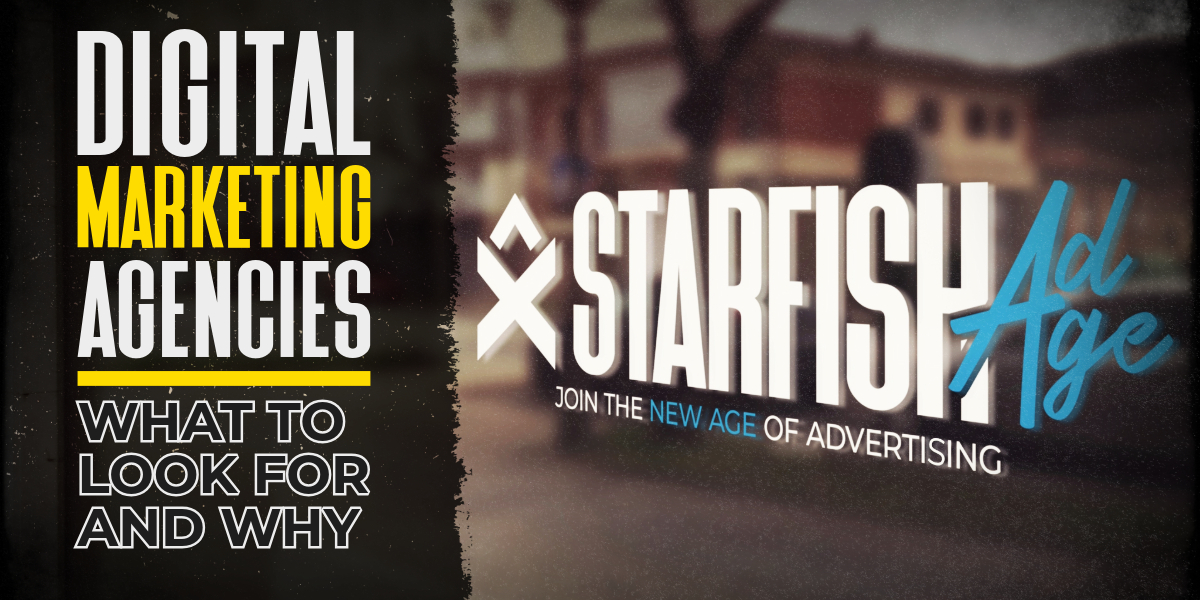
Learn how to select the best digital marketing agency for your small business, the benefits of hiring an agency, and tips for maximizing your online presence.
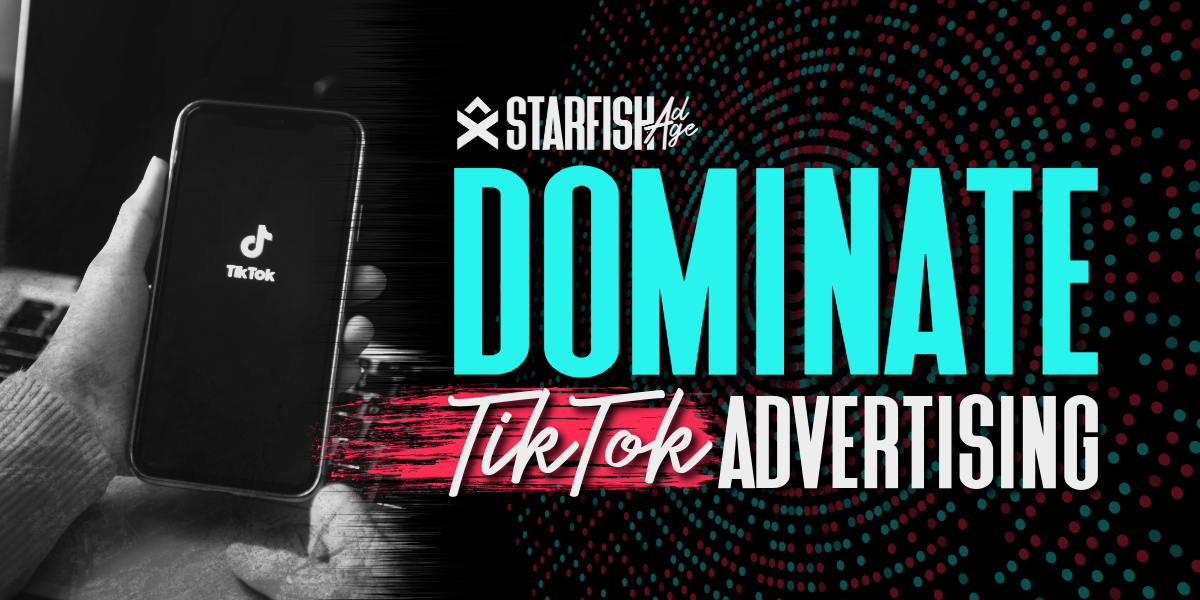
Learn how to leverage TikTok advertising, ad formats, targeting options, and best practices to increase brand awareness, and drive sales.

Learn about Connected TV (CTV) ads, their benefits, and how they work. Understand programmatic CTV advertising for effective digital marketing campaigns.
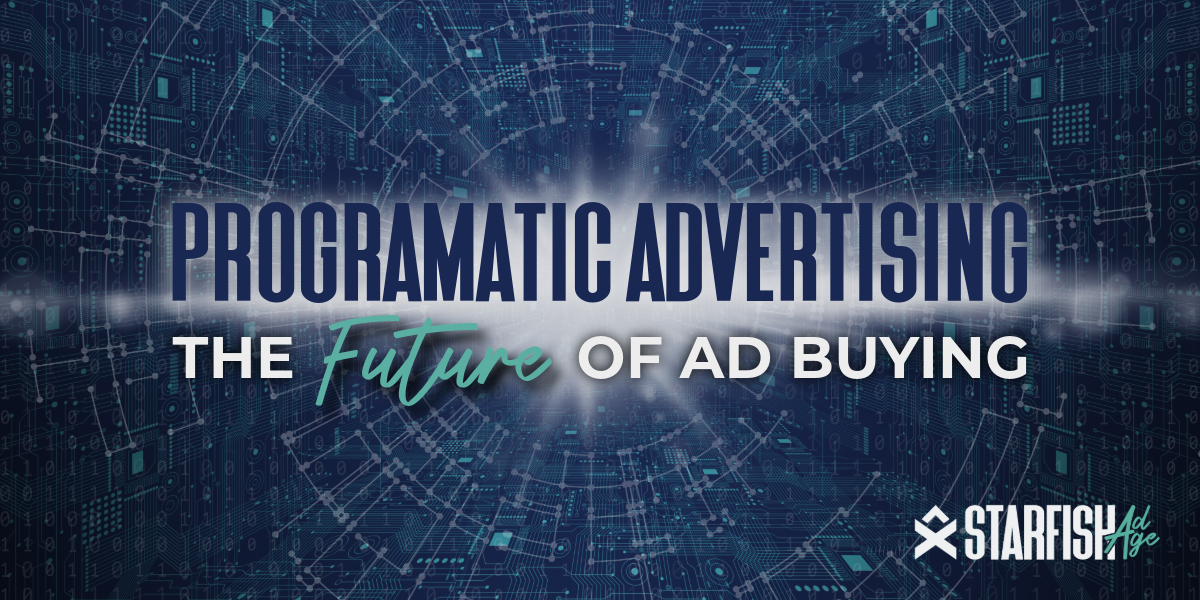
Discover the benefits of programmatic advertising, an automated method of buying digital ad space that enhances targeting, efficiency, and campaign performance.
All Rights Reserved | Starfish Ad Age LLC | 2023 | Privacy Policy